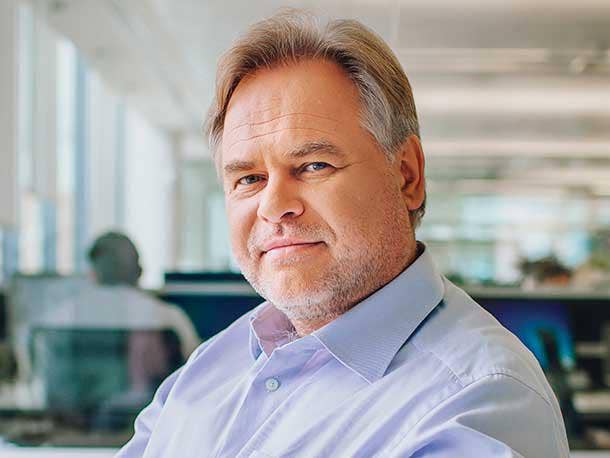Kaspersky: We’re ‘Not Affected’ By The Sanctions On Russia
Moscow-based Kaspersky said it guarantees fulfillment of its obligations to partners and customers, including product delivery and support and financial transaction continuity despite sanctions on Russia.

Kaspersky said its business operations remain stable and haven’t been harmed by the crippling economic sanctions issued against Russia for its recent invasion of Ukraine.
The Moscow-based platform security vendor said it guarantees fulfillment of its obligations to partners and customers, including product delivery and support and financial transaction continuity. Kaspersky’s global management team is monitoring the situation very carefully and is ready to act very quickly if needed, the company told CRN in a statement.
“Kaspersky’s business operations remain stable and are not affected by the current sanctions,” a company spokesperson said in an email. A company spokesperson told CRN Kaspersky has been able to pay all of its employees and contractors in North America, Europe, and Russia.
[Related: 6 Things Kaspersky Lab Says It‘s Doing To Win The Trust Of Its Customers And Partners]
The company, which has its Americas headquarters in Woburn, Mass., also said it’s not in a position to comment or speculate on geopolitical developments outside its area of expertise. Company co-founder and CEO Eugene Kaspersky previously served in the Soviet military intelligence service as a software engineer, according to media reports, and issued a statement earlier this week that failed to condemn Russia for invading Ukraine or even mention Russia.
“We welcome the start of negotiations to resolve the current situation in Ukraine and hope that they will lead to a cessation of hostilities and a compromise,” Eugene Kaspersky (pictured above) wrote on Twitter at 1:35 a.m. ET Tuesday. “We believe that peaceful dialogue is the only possible instrument for resolving conflicts. War isn’t good for anyone.”
Following Russia’s invasion of Ukraine last week, Western leaders have frozen the assets of Russia‘s central bank, limiting its ability to access $630 billion of its U.S. dollar reserves. In addition, selected Russian banks are being removed from the Swift messaging system, which enables the smooth transfer of money across borders. The ban will delay the payments Russia gets for exports of oil and gas.
In response, Russia then more than doubled its key interest rate in hopes of stemming the decline of the ruble, which fell 30 percent against the U.S. dollar after sanctions were introduced. Russia is blocking interest payments to foreign investors who hold government bonds and banning Russian companies from paying overseas shareholders.
Kaspersky is very accustomed to being in geopolitical crosshairs. The U.S. Department of Homeland Security issued a directive in September 2017 mandating civilian federal government agencies remove Kaspersky‘s software after the company was accused of having links to Russian intelligence services.
In December 2017, then-President Donald Trump signed a broader defense policy spending bill that bans Kaspersky‘s software from both civilian and military networks. The ban on U.S. government sales has made many American customers in the enterprise, commercial or state and local government spaces reluctant to buy Kaspersky’s technology even though sales aren’t outright prohibited.
Kaspersky said its North American sales were flat in 2020 as compared with the year prior. Conversely, the company experienced a 15 percent increase in year-over-year sales to Russia, the Baltics, Central Asia, and the Commonwealth of Independent States (CIS). The company also enjoyed double-digit revenue growth in 2020 in both Latin America as well as the Middle East, Turkey, and Africa (META).
In May 2018, Kaspersky announced plans to move several its core processes from Russia to Switzerland, including software assembly, threat detection updates, and customer data storage and processing for most regions. By November 2018, Kaspersky said that all threat-related data shared by European users was now being processed in two data centers located in Zurich, Switzerland.
Kaspersky also in November 2018 opened its first Transparency Center in Zurich, enabling governments and partners to access reviews of the company’s code, software updates and threat detection rules. The company subsequently opened Transparency Centers elsewhere in Europe as well as Latin America and Asia, and then in December 2021 opened its first North American center in Fredericton, New Brunswick.